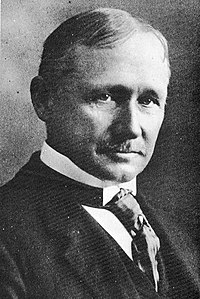Classical approach did not give importance to the human aspects of employees and it did not achieved expected level of productivity. There was not effective cooperation between Manager and employee.Neo-Classical Approach arrived to fill the gaps in classical approach. basically following approaches are contained to neo-classical approach.
- Human Relation Approach
- Human Behavioral Approach
- Contingency Theory
Human Relation Approach
Elton Mayo is the founder of Human Relation movement and can be introduced as the father of modern Human Resource Management.According to Mayo's Howthron study he found that, to achieve organizational goals and objectives , the organization should consider about employee's emotions, satisfaction of non-monitory needs and sense of recognition etc. He mainly considered about the concept of ' Social man '. Elton Mayo believed financial benefits are not the only motivator. He found that,
- Individuals motivate by social needs and job satisfaction and respond to group work more than force to do work by management control activities.
- Organizations are cooperative social systems.
- Satisfy psychological needs should be preliminary concern of the management.
- Informal work groups can have a considerable effect on productivity.
- Employees consider about satisfying their need more than giving monitory benefits.
According to his experiments Elton Mayo found that,
- Social bonds within work groups are so strong more than individual monitory rewarding.
- The working groups can be powerful driving force to achieve organizational goals if they see by working towards organizational goals fulfill their individual goals.
- output of the product line is based on informal groups. If one member feels he is working extraordinary then he ll follow his other members.
The view of this approach is,
" If you treat people as they are, they will stay as they are ; If you treat people what they ought to be, they will become bigger and better person. "
Principles of Human Relation Approach
- Human beings are not interested only in financial gains. They also need recognition and appreciation.
- Workers are human beings. So they must be treated like human beings and not like machines. Managers should try to understand the feelings and emotions of the workers.
- An organisation works not only through formal relations, but also through informal relations. Therefore, managers should encourage informal relations in the organisation along with formal relations.
- Workers need a high degree of job security and job satisfaction. Therefore, management should give job security and job satisfaction to the workers.
- Workers want good communication from the managers. Therefore, managers should communicate effectively without feelings of ego and superiority complex.
- In any organisation, members do not like conflicts and misunderstandings. Therefore, managers should try to stop conflicts and misunderstandings among the members of the organisation.
- Workers want freedom. They do not want strict supervision. Therefore, managers should avoid strict supervision and control over the workers.
- Employees would like to participate in decision making, especially, in those matters affecting their interests. Therefore, management must encourage workers' participation in management. This will increase productivity and job satisfaction.
(reference : kalyan_city.blogspot.com)

